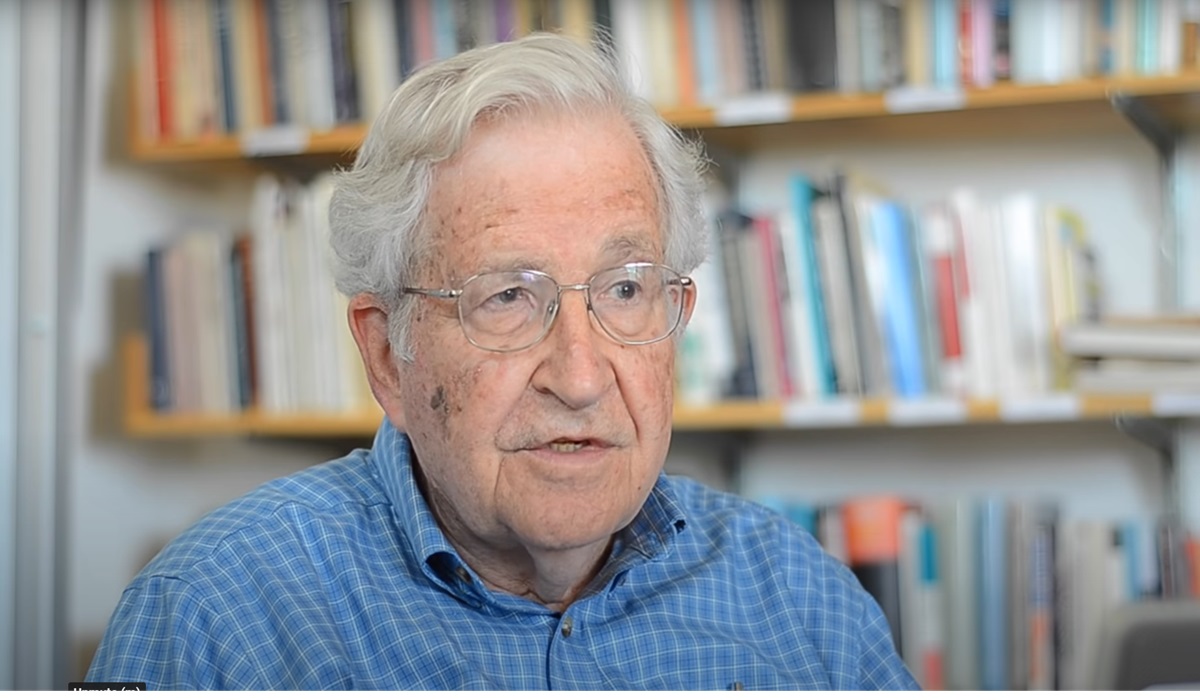Image Credit, Parecon Finland
In a recent appearance on the Piers Morgan show, internationally renowned scholar Noam Chomsky, celebrated for his extensive contributions to linguistics, philosophy, and political analysis, delivered a sharp critique of U.S. foreign policy. Chomsky, whose seminal work “Manufacturing Consent” explores the intricate relationship between governments and media in shaping public perception, weighed in on current geopolitical tensions.
During the interview, Chomsky offered incisive commentary on the United States’ efforts to involve Europe in its confrontation with China. He pointed out that the U.S. has expanded NATO’s reach to the Indo-Pacific region, effectively transforming it into an international military system under American control. “The U.S. is now trying to enlist Europe in its confrontation with China by expanding NATO,” Chomsky stated. “The U.S. has expanded NATO to the Indo-Pacific region, turning it into an international military system under U.S. control. All of this is going on. We can, if we like, talk about the possible contingency of China invading Taiwan, for which there is no indication, though it could happen if we continue the provocation. But if you look at the facts, it’s us.”
Chomsky’s remarks serve as a significant critique of current U.S. policy, particularly under the Biden administration. He highlighted the potential consequences of provocative actions towards China, suggesting that such measures could lead to unnecessary conflict. This perspective challenges the prevailing narrative in Washington, urging a reconsideration of strategies that might escalate tensions rather than fostering diplomatic solutions.
As a respected figure across the political spectrum, Chomsky’s assessments carry weight. His analysis underscores the need for careful evaluation of U.S. foreign policy choices, especially those that might draw other nations into complex confrontations. Despite his authoritative voice, there is skepticism about whether his insights will prompt a shift in the Biden administration’s approach.
Chomsky’s revelations should serve as a strong rebuke to the current U.S. strategy, calling for a more nuanced and less confrontational stance. However, given the entrenched nature of geopolitical strategies and the interests at play, his warnings may not resonate with policymakers. The challenge remains for the administration to balance national security concerns with the imperative of avoiding unnecessary provocations that could lead to broader conflicts.









